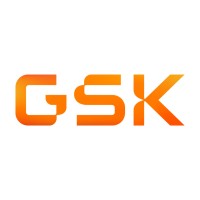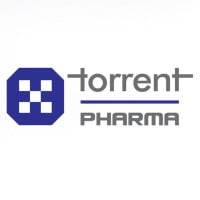
GSK
We are uniting science, technology and talent to get ahead of disease together. Our community guidelines: https://gsk.to/socialmedia



We are uniting science, technology and talent to get ahead of disease together. Our community guidelines: https://gsk.to/socialmedia

Torrent Pharma, with annual revenues of more than Rs 10,700 crores, is the flagship Company of the Torrent Group, with group revenues of Rs 41,000 crores. It is ranked 5th in the Indian Pharma Market and is among the Top 5 in the therapeutic segments of Cardiovascular (CV), Central Nervous System (CNS), Gastro-intestinal (GI), Vitamins Minerals Nutritionals (VMN) and Cosmo-Dermatology. The Company also has significant presence in diabetology, pain management, gynaecology, oncology and anti-infective segments. Torrent has 8 manufacturing facilities , of which 5 are USFDA approved. With R&D as the backbone for its growth in domestic & overseas market, it has invested significantly in R&D capabilities with state-of-the-art R&D infrastructure employing around 800 scientists. The acquisition of Elder Pharma's Indian branded business in 2013, Dermaceuticals business of Zyg Pharma in 2015, API plant of Glochem Industries in 2016, Women healthcare brands from Novartis and Unichem's Indian branded business along with its Sikkim Plant in 2017 strengthened Torrent Pharma's position in the Indian Pharma market. Torrent Pharma started international acquisitions in 2005 with entry into the German market. Today, the Company has presence in more than 50 countries and is ranked No. 1 among the Indian pharma Companies in Brazil and Germany. Torrent Pharma is committed towards “not just healthcare but lifecare.”
Security & Compliance Standards Overview












No incidents recorded for GSK in 2025.
No incidents recorded for Torrent Pharmaceuticals Ltd in 2025.
GSK cyber incidents detection timeline including parent company and subsidiaries
Torrent Pharmaceuticals Ltd cyber incidents detection timeline including parent company and subsidiaries
Last 3 Security & Risk Events by Company
Angular is a development platform for building mobile and desktop web applications using TypeScript/JavaScript and other languages. Prior to versions 19.2.16, 20.3.14, and 21.0.1, there is a XSRF token leakage via protocol-relative URLs in angular HTTP clients. The vulnerability is a Credential Leak by App Logic that leads to the unauthorized disclosure of the Cross-Site Request Forgery (XSRF) token to an attacker-controlled domain. Angular's HttpClient has a built-in XSRF protection mechanism that works by checking if a request URL starts with a protocol (http:// or https://) to determine if it is cross-origin. If the URL starts with protocol-relative URL (//), it is incorrectly treated as a same-origin request, and the XSRF token is automatically added to the X-XSRF-TOKEN header. This issue has been patched in versions 19.2.16, 20.3.14, and 21.0.1. A workaround for this issue involves avoiding using protocol-relative URLs (URLs starting with //) in HttpClient requests. All backend communication URLs should be hardcoded as relative paths (starting with a single /) or fully qualified, trusted absolute URLs.
Forge (also called `node-forge`) is a native implementation of Transport Layer Security in JavaScript. An Uncontrolled Recursion vulnerability in node-forge versions 1.3.1 and below enables remote, unauthenticated attackers to craft deep ASN.1 structures that trigger unbounded recursive parsing. This leads to a Denial-of-Service (DoS) via stack exhaustion when parsing untrusted DER inputs. This issue has been patched in version 1.3.2.
Forge (also called `node-forge`) is a native implementation of Transport Layer Security in JavaScript. An Integer Overflow vulnerability in node-forge versions 1.3.1 and below enables remote, unauthenticated attackers to craft ASN.1 structures containing OIDs with oversized arcs. These arcs may be decoded as smaller, trusted OIDs due to 32-bit bitwise truncation, enabling the bypass of downstream OID-based security decisions. This issue has been patched in version 1.3.2.
Suricata is a network IDS, IPS and NSM engine developed by the OISF (Open Information Security Foundation) and the Suricata community. Prior to versions 7.0.13 and 8.0.2, working with large buffers in Lua scripts can lead to a stack overflow. Users of Lua rules and output scripts may be affected when working with large buffers. This includes a rule passing a large buffer to a Lua script. This issue has been patched in versions 7.0.13 and 8.0.2. A workaround for this issue involves disabling Lua rules and output scripts, or making sure limits, such as stream.depth.reassembly and HTTP response body limits (response-body-limit), are set to less than half the stack size.
Suricata is a network IDS, IPS and NSM engine developed by the OISF (Open Information Security Foundation) and the Suricata community. In versions from 8.0.0 to before 8.0.2, a NULL dereference can occur when the entropy keyword is used in conjunction with base64_data. This issue has been patched in version 8.0.2. A workaround involves disabling rules that use entropy in conjunction with base64_data.